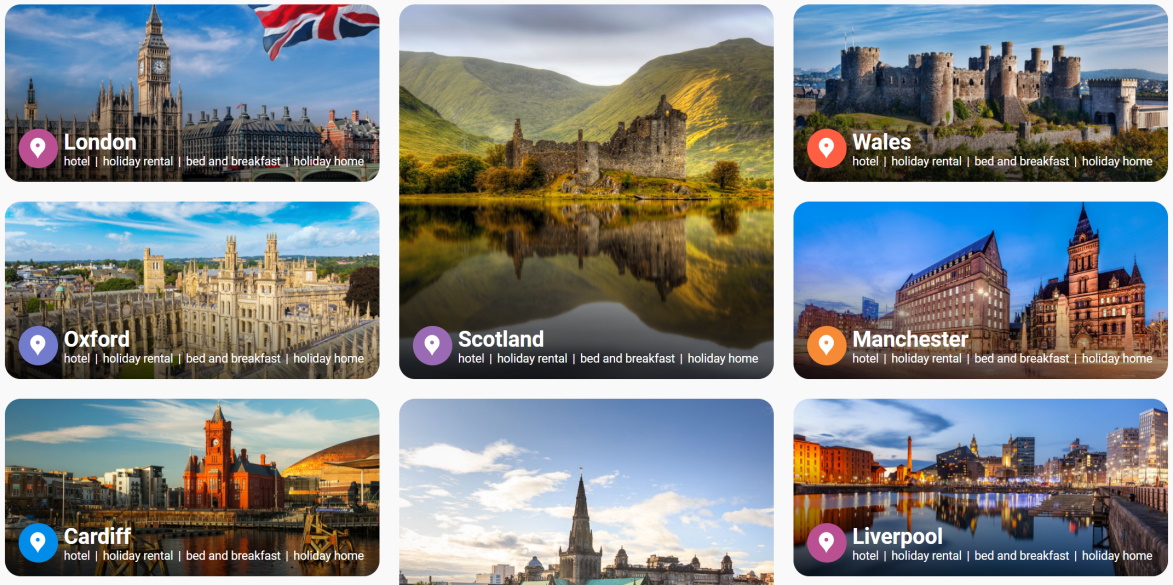Cozycozy, is tackling consumer manipulation in the travel industry
- Written by Business Daily Media

With its user-centric algorithm, Cozycozy fights against the Online Travel Agencies' rampant manipulation of consumers’ choices.
In 2019, 112.3 million domestic trips and 11.3 Million international trips were taken by Australia residents. And the vast majority of them used OTAs to plan or research their trip, where their choices are influenced through consumer bias tactics.
For the first time, an accommodation search engine gives full power to travelers to find the best accommodation. Designed to help travelers compare, filter, and sort offers, Cozycozy presents all available accommodation solutions in an impartial and transparent manner to its users, so they can search with confidence.
A one-stop platform that aggregates offers among hundreds of specialty sites like Booking.com, Airbnb, VRBO, Trip, Agoda, Hotels.com, Expedia, and many more. Launched in 2019, Cozycozy is operating in 39 countries around the world, featuring more than 20 million accommodation listings.
How on-site biases affect consumer decisions
OTAs use on-site bias techniques to influence consumer decisions. Travelers have limited memory which may impede their decision process. These limitations can cause someone searching for accommodation to rely more on trust and intuitive perceptions of the OTA than on local reasoning.
Some consumer biases that can influence decision making are:
-
The position of the product. Primacy and recency are deciding factors. Hotels listed at the top (primacy) or at the bottom (recency) are more likely to be selected than hotels listed in the middle.
-
A hotel listed as being at a discount. This taps into the heuristic cue, as price difference influences trust.
-
Scarcity cues. Listing scarcity cues, like “only one room left,” can increase sales due to a sense of urgency.
According to “Impact of OTA Bias and Consolidation on Consumers” by Benjamin Edelman (2017)3, funded by The American Hotel & Lodging Association (AHLA) following concerns about OTA practices, hotels can end up paying OTA fees of 25% or more.
The paper also concluded search bias could cause harm by:
-
Deceiving consumers expecting the properties featured on OTAs to match their request, not prioritized based on payment.
-
Perpetuating market norms through bias, as consumers tend to book through OTAs despite the availability of less costly technologies, i.e., booking directly with the hotels at a lower price. OTAs penalize hotels that use these methods.
-
Driving up the fees for the hotels.
Since the paper’s publication, several EU countries legally challenged the non-competitive business practices by OTAs in 20194. However, despite this, a study by Expedia5 found that “Travelers are 57% more likely to book their travel through an OTA now than before COVID-19.”
How an unbiased metasearch platform like Cozycozy can help
Travel start-up Cozycozy provides an entirely independent metasearch engine to bring the best prices and offers that meet the consumers’ needs and also shows the right accommodation to the consumer without requiring a premium to be paid. Metasearch engines is a marketing tool which will benefit hotels to broaden their reach, increase revenue and compete with OTAs.
Cozycozy aims to remove such biases by:
-
Taking offers from a large number of OTAs and sorting them with its own unbiased algorithm that is created to meet the user requirements as closely as possible.
-
Simultaneously querying a maximum of booking sites (hotel platforms and chains like Accor, vacation rental websites, atypical accommodations specialists, etc.), all in a few seconds, to allow the consumer to choose the accommodation that best suits them.
-
Offering a platform where the consumer-traveler is in charge of their booking decisions uninfluenced by the profitability-based ranking thus enabling them to make the most judicious and advantageous choice for them.
-
Showing an accurate, real-time price at the time of search with no hidden charges.
-
Providing ALL accommodation solutions and price comparisons for a given destination: hotels, apartments, houses, hostels, cabins, boats, treehouses, etc.
Cozycozy offers users a metasearch platform that is fully:
-
Transparent. The prices are displayed with all costs included, which avoids unpleasant surprises at the time of booking.
-
Independent. The results presented correspond exactly to the search criteria indicated by Internet users. No merchant site is privileged to the detriment of the others.
-
Customizable. Consumers can sort results based on geographic location, available devices, and services, consumers ratings and reviews, but also price.
-
Free. The use of Cozycozy is completely free for Internet users. No fees are applied to reservations made from the site.
To know more
Cozycozy US: https://www.cozycozy.com/us
Instagram: https://www.instagram.com/cozycozy_com/
LinkedIn: https://www.linkedin.com/company/cozycozy
Sources:
-
https://www.travelweekly.com/Travel-News/Hotel-News/Hotels-direct-bookings-making-up-ground-on-OTAs
-
https://www.benedelman.org/publications/ota-bias-12jul2017.pdf
-
https://www.hotelmanagement.net/operate/social-distancing-between-hotels-otas
-
https://welcome.expediagroup.com/trends-insights/EN_economicImpact_whitepaper_FINAL.pdf
-
https://www.sciencedirect.com/science/article/abs/pii/S0261517719301219







